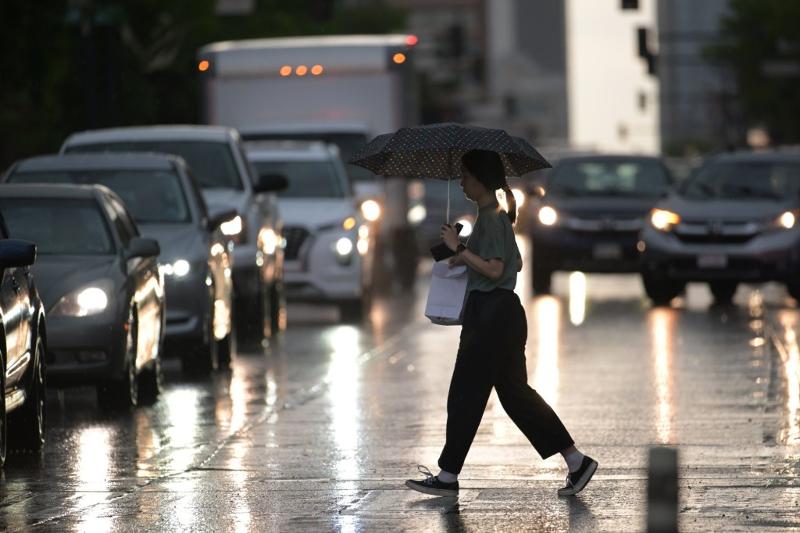Lawmakers in Colorado are considering a plan to increase registration fees for larger vehicles in an effort to improve road safety and reduce the rising number of pedestrian and cyclist deaths. The proposed fees would be used to fund projects that make roads safer for bicyclists and pedestrians, with the goal of addressing the increased risk of injury or death posed by larger vehicles. This article explores the details of the proposed plan and its potential impact on road safety in Colorado's most populated counties.
Increasing Fees to Improve Road Safety
Proposed higher registration fees for larger vehicles to fund road safety projects
Lawmakers in Colorado are proposing higher registration fees for larger vehicles as a means to fund road safety projects. The fees would be used to improve infrastructure and implement measures that make roads safer for bicyclists and pedestrians.
By charging owners of larger vehicles, who pose a higher risk of injury or death to pedestrians and cyclists, the aim is to incentivize safer driving practices and reduce the number of accidents involving vulnerable road users.
Addressing the Increase in Pedestrian and Cyclist Fatalities
Linking larger vehicles to the rising number of pedestrian and cyclist deaths
Colorado has witnessed a concerning surge in pedestrian and cyclist fatalities in recent years. The increase can be attributed, in part, to the growing number of larger and heavier vehicles on the road.
Research shows that larger vehicles pose a greater risk to pedestrians and cyclists due to their size and weight. By implementing higher registration fees for these vehicles, lawmakers hope to address this issue and create safer road conditions for all users.
Funding Multimodal Safety Projects
Allocating the raised fees towards multimodal safety initiatives
The proposed plan aims to raise approximately $20 million annually through the increased registration fees. This funding would be allocated to local governments in Colorado's most populated counties to support multimodal safety projects.
These projects may include the construction of sidewalks, bike lanes, crosswalks, and other infrastructure improvements that enhance safety for pedestrians and cyclists. By investing in these initiatives, the goal is to encourage alternative modes of transportation and reduce reliance on cars.
Impact on Vehicle Owners and Exemptions
Examining the financial implications and exemptions for vehicle owners
The proposed plan would impact vehicle owners in Colorado's 12 most populous counties, specifically those with cars, SUVs, and trucks weighing at least 3,500 pounds. The fees would be in addition to existing registration costs.
Owners of vehicles weighing less than 3,500 pounds, such as a 2023 Toyota Corolla, would not be subject to the increased fees. Additionally, commercial vehicles would be exempt from the measure to avoid placing an undue burden on businesses.
Criticism and Support for the Proposal
Debate surrounding the proposed higher registration fees
The proposal has garnered both criticism and support from various stakeholders. Critics argue that Colorado already has numerous vehicle registration fees and question why drivers should bear the cost of improving roadways for bicyclists.
On the other hand, supporters, including organizations like Bicycle Colorado, believe that the raised fees would provide much-needed funding for road safety projects. They emphasize the importance of creating safer streets to encourage alternative modes of transportation and reduce the number of accidents involving pedestrians and cyclists.
Next Steps and Potential Impact
The path forward for the proposed plan and its potential impact on road safety
The proposed plan has cleared the legislative review committee and now awaits approval from a final interim committee before being forwarded to the full legislature in January.
If implemented, the higher registration fees for larger vehicles could raise approximately $20 million annually, providing crucial funding for road safety projects in Colorado's most populated counties. The aim is to create safer road conditions, reduce pedestrian and cyclist fatalities, and promote alternative modes of transportation.
Conclusion
The proposed plan to increase registration fees for larger vehicles in Colorado's most populated counties is a proactive step towards improving road safety. By allocating the raised fees to fund multimodal safety projects, the aim is to create safer road conditions for pedestrians and cyclists.
While the proposal has garnered both criticism and support, the potential impact of these higher fees could provide much-needed funding for road safety initiatives. By incentivizing safer driving practices and investing in infrastructure improvements, Colorado aims to reduce the number of accidents involving vulnerable road users and promote alternative modes of transportation.
FQA
Will all vehicle owners be subject to the increased registration fees?
No, only owners of cars, SUVs, and trucks weighing at least 3,500 pounds in Colorado's 12 most populous counties would be subject to the increased registration fees. Vehicles weighing less than 3,500 pounds and commercial vehicles would be exempt from the measure.
What would the raised fees be used for?
The raised fees would be allocated to local governments in larger counties to fund multimodal safety projects. These projects may include the construction of sidewalks, bike lanes, crosswalks, and other infrastructure improvements aimed at enhancing safety for pedestrians and cyclists.
How much funding is expected to be raised through the increased registration fees?
The proposed plan aims to raise approximately $20 million annually through the increased registration fees. This funding would contribute to improving road safety and creating safer conditions for all road users.
When will the proposed plan be implemented?
The proposed plan has cleared the legislative review committee and awaits approval from a final interim committee. If approved, it will be forwarded to the full legislature in January for further consideration and potential implementation.

